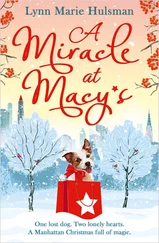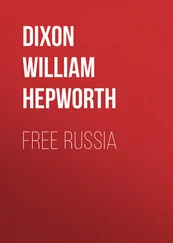Nikolai Nekrasov - Who Can Be Happy and Free in Russia?
Здесь есть возможность читать онлайн «Nikolai Nekrasov - Who Can Be Happy and Free in Russia?» весь текст электронной книги совершенно бесплатно (целиком полную версию без сокращений). В некоторых случаях можно слушать аудио, скачать через торрент в формате fb2 и присутствует краткое содержание. Год выпуска: 2005, Жанр: Поэзия, на английском языке. Описание произведения, (предисловие) а так же отзывы посетителей доступны на портале библиотеки ЛибКат.
- Название:Who Can Be Happy and Free in Russia?
- Автор:
- Жанр:
- Год:2005
- ISBN:нет данных
- Рейтинг книги:3 / 5. Голосов: 1
-
Избранное:Добавить в избранное
- Отзывы:
-
Ваша оценка:
- 60
- 1
- 2
- 3
- 4
- 5
Who Can Be Happy and Free in Russia?: краткое содержание, описание и аннотация
Предлагаем к чтению аннотацию, описание, краткое содержание или предисловие (зависит от того, что написал сам автор книги «Who Can Be Happy and Free in Russia?»). Если вы не нашли необходимую информацию о книге — напишите в комментариях, мы постараемся отыскать её.
Who Can Be Happy and Free in Russia? — читать онлайн бесплатно полную книгу (весь текст) целиком
Ниже представлен текст книги, разбитый по страницам. Система сохранения места последней прочитанной страницы, позволяет с удобством читать онлайн бесплатно книгу «Who Can Be Happy and Free in Russia?», без необходимости каждый раз заново искать на чём Вы остановились. Поставьте закладку, и сможете в любой момент перейти на страницу, на которой закончили чтение.
Интервал:
Закладка:
Your words of condolence
Are frozen, and blindly,
Like one deep insulted,
You make your way homeward.
Amen…."
The pope finished
His speech, and touched lightly
The back of the gelding.
The peasants make way,
And they bow to him deeply. 450
The cart moves on slowly,
Then six of the comrades
As though by agreement
Attack poor Luká
With indignant reproaches.
"Now, what have you got?—
You great obstinate blockhead,
You log of the village!
You too must needs argue;
Pray what did you tell us? 460
'The popes live like princes,
The lords of the belfry,
Their palaces rising
As high as the heavens,
Their bells set a-chiming
All over God's world.
"'Three years,' you declared,
'Did I work as pope's servant.
It wasn't a life—
'Twas a strawberry, brethren; 470
Pope's kasha [14] Kasha and stchee are two national dishes.
is made
And served up with fresh butter.
Pope's stchee[14] made with fish,
And pope's pie stuffed to bursting;
The pope's wife is fat too,
And white the pope's daughter,
His horse like a barrel,
His bees are all swollen
And booming like church bells.'
"Well, there's your pope's life,— 480
There's your 'strawberry,' boaster!
For that you've been shouting
And making us quarrel,
You limb of the Devil!
Pray is it because
Of your beard like a shovel
You think you're so clever?
If so, let me tell you
The goat walked in Eden
With just such another 490
Before Father Adam,
And yet down to our time
The goat is considered
The greatest of duffers!"
The culprit was silent,
Afraid of a beating;
And he would have got it
Had not the pope's face,
Turning sadly upon them,
Looked over a hedge 500
At a rise in the road.
CHAPTER II
THE VILLAGE FAIR
No wonder the peasants
Dislike a wet spring-tide:
The peasant needs greatly
A spring warm and early.
This year, though he howl
Like a wolf, I'm afraid
That the sun will not gladden
The earth with his brightness.
The clouds wander heavily,
Dropping the rain down 10
Like cows with full udders.
The snow has departed,
Yet no blade of grass,
Not a tiny green leaflet,
Is seen in the meadows.
The earth has not ventured
To don its new mantle
Of brightest green velvet,
But lies sad and bare
Like a corpse without grave-clothes
Beneath the dull heavens. 21
One pities the peasant;
Still more, though, his cattle:
For when they have eaten
The scanty reserves
Which remain from the winter,
Their master will drive them
To graze in the meadows,
And what will they find there
But bare, inky blackness? 30
Nor settled the weather
Until it was nearing
The feast of St. Nichol,
And then the poor cattle
Enjoyed the green pastures.
The day is a hot one,
The peasants are strolling
Along 'neath the birch-trees.
They say to each other,
"We passed through one village, 40
We passed through another,
And both were quite empty;
To-day is a feast-day,
But where are the people?"
They reach a large village;
The street is deserted
Except for small children,
And inside the houses
Sit only the oldest
Of all the old women. 50
The wickets are fastened
Securely with padlocks;
The padlock's a loyal
And vigilant watch-dog;
It barks not, it bites not,
But no one can pass it.
They walk through the village
And see a clear mirror
Beset with green framework—
A pond full of water; 60
And over its surface
Are hovering swallows
And all kinds of insects;
The gnats quick and meagre
Skip over the water
As though on dry land;
And in the laburnums
Which grow on the banksides
The landrails are squeaking.
A raft made of tree-trunks 70
Floats near, and upon it
The pope's heavy daughter
Is wielding her beetle,
She looks like a hay-stack,
Unsound and dishevelled,
Her skirts gathered round her.
Upon the raft, near her,
A duck and some ducklings
Are sleeping together.
And hark! from the water 80
The neigh of a horse comes;
The peasants are startled,
They turn all together:
Two heads they see, moving
Along through the water—
The one is a peasant's,
A black head and curly,
In one ear an ear-ring
Which gleams in the sunlight;
A horse's the other, 90
To which there is fastened
A rope of some yards length,
Held tight in the teeth
Of the peasant beside it.
The man swims, the horse swims;
The horse neighs, the man neighs;
They make a fine uproar!
The raft with the woman
And ducklings upon it
Is tossing and heaving. 100
The horse with the peasant
Astride has come panting
From out of the water,
The man with white body
And throat black with sunburn;
The water is streaming
From horse and from rider.
"Say, why is your village
So empty of people?
Are all dead and buried?" 110
"They've gone to Kousminsky;
A fair's being held there
Because it's a saint's day."
"How far is Kousminsky?"
"Three versts, I should fancy."
"We'll go to Kousminsky,"
The peasants decided,
And each to himself thought,
"Perhaps we shall find there
The happy, the free one." 120
The village Kousminsky
Is rich and commercial
And terribly dirty.
It's built on a hill-side,
And slopes down the valley,
Then climbs again upwards,—
So how could one ask of it
Not to be dirty? [15] The mud and water from the high lands on both sides descend and collect in the villages so situated, which are often nearly transformed into swamps during the rainy season.
It boasts of two churches.
The one is "dissenting," 130
The other "Established."
The house with inscription,
"The School-House," is empty,
In ruins and deserted;
And near stands the barber's,
A hut with one window,
From which hangs the sign-board
Of "Barber and Bleeder."
A dirty inn also
There is, with its sign-board 140
Adorned by a picture:
A great nosy tea-pot
With plump little tea-cups
Held out by a waiter,
Suggesting a fat goose
Surrounded by goslings.
A row of small shops, too,
There is in the village.
The peasants go straight
To the market-place, find there 150
A large crowd of people
And goods in profusion.
Интервал:
Закладка:
Похожие книги на «Who Can Be Happy and Free in Russia?»
Представляем Вашему вниманию похожие книги на «Who Can Be Happy and Free in Russia?» списком для выбора. Мы отобрали схожую по названию и смыслу литературу в надежде предоставить читателям больше вариантов отыскать новые, интересные, ещё непрочитанные произведения.
Обсуждение, отзывы о книге «Who Can Be Happy and Free in Russia?» и просто собственные мнения читателей. Оставьте ваши комментарии, напишите, что Вы думаете о произведении, его смысле или главных героях. Укажите что конкретно понравилось, а что нет, и почему Вы так считаете.











